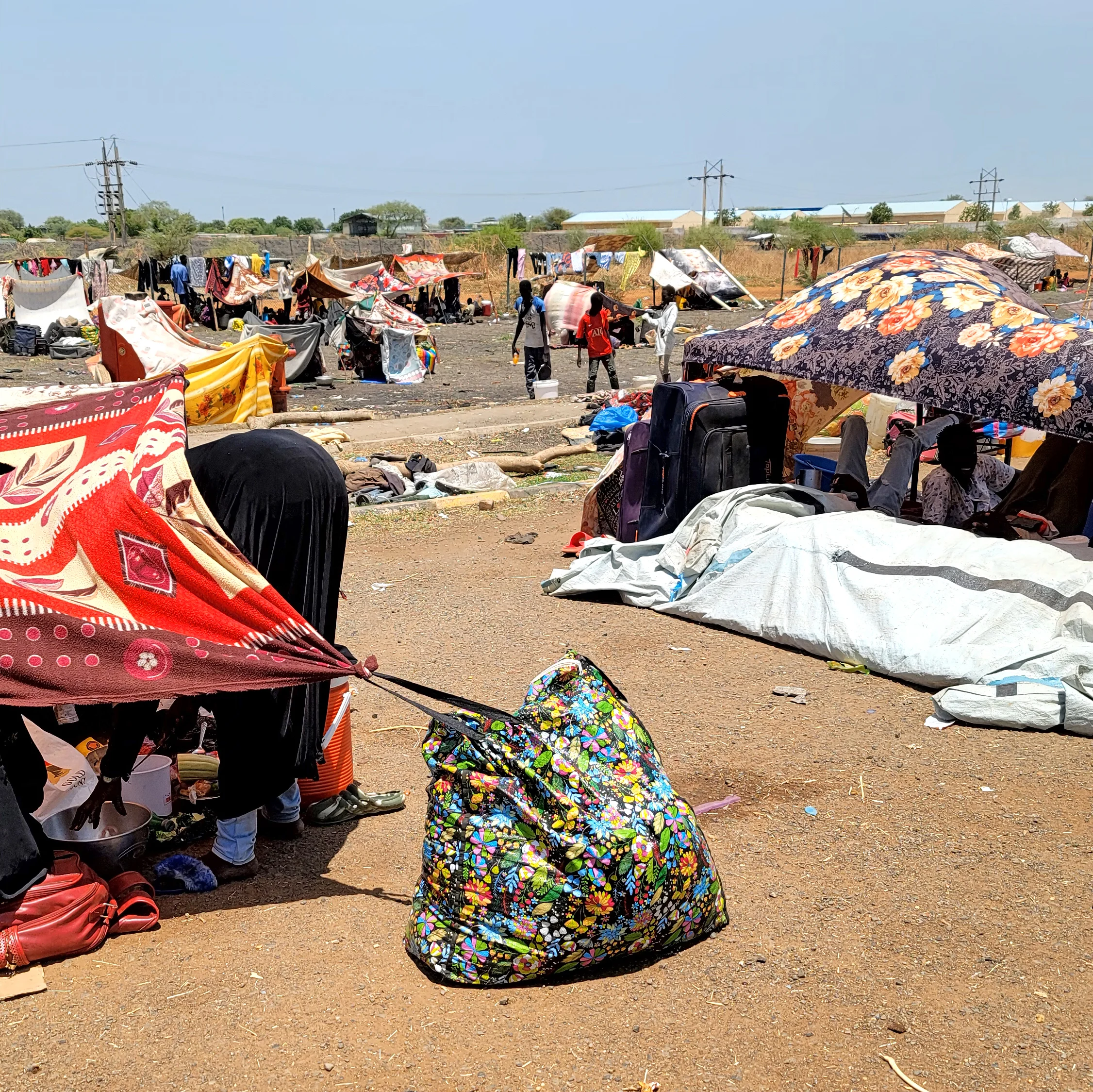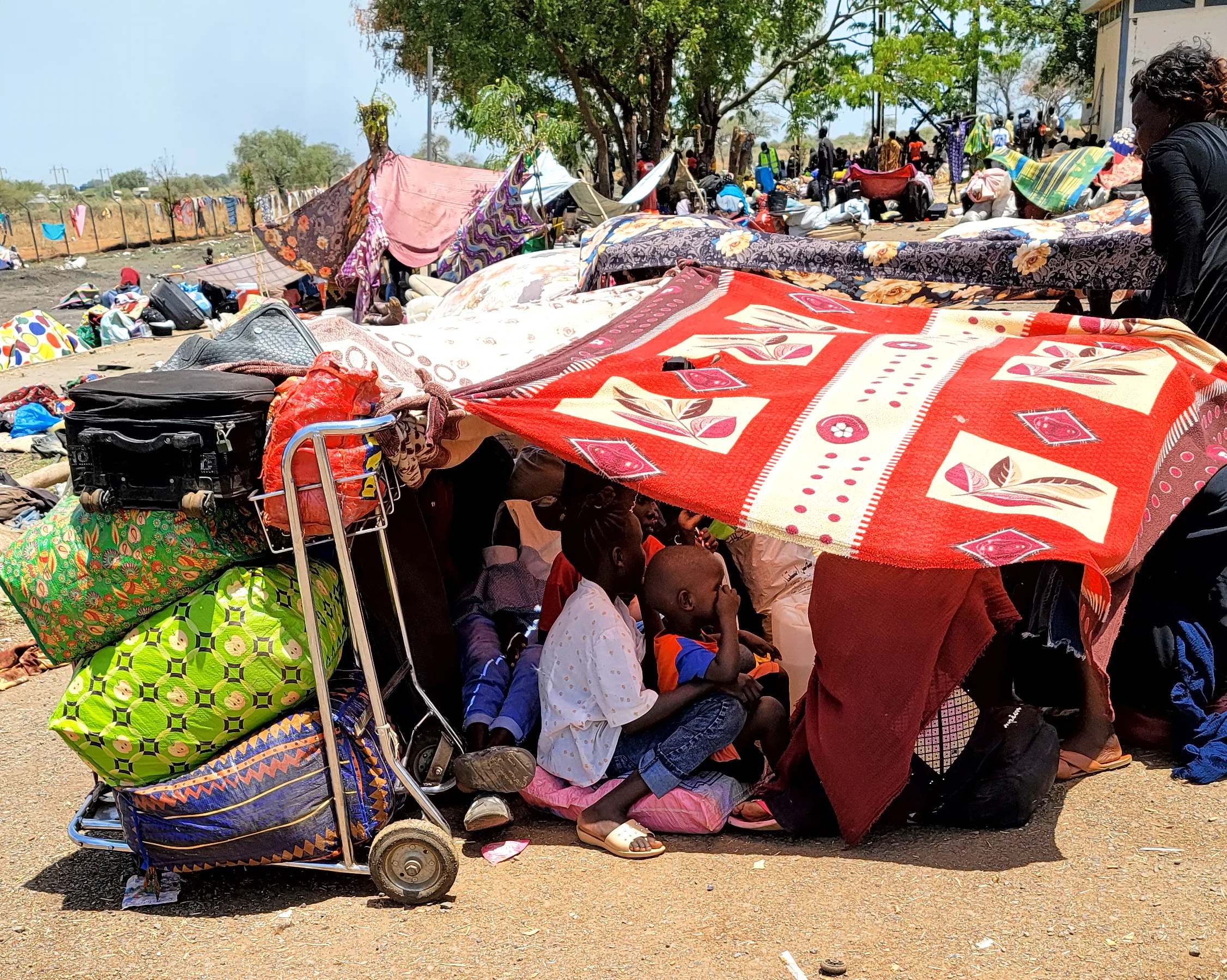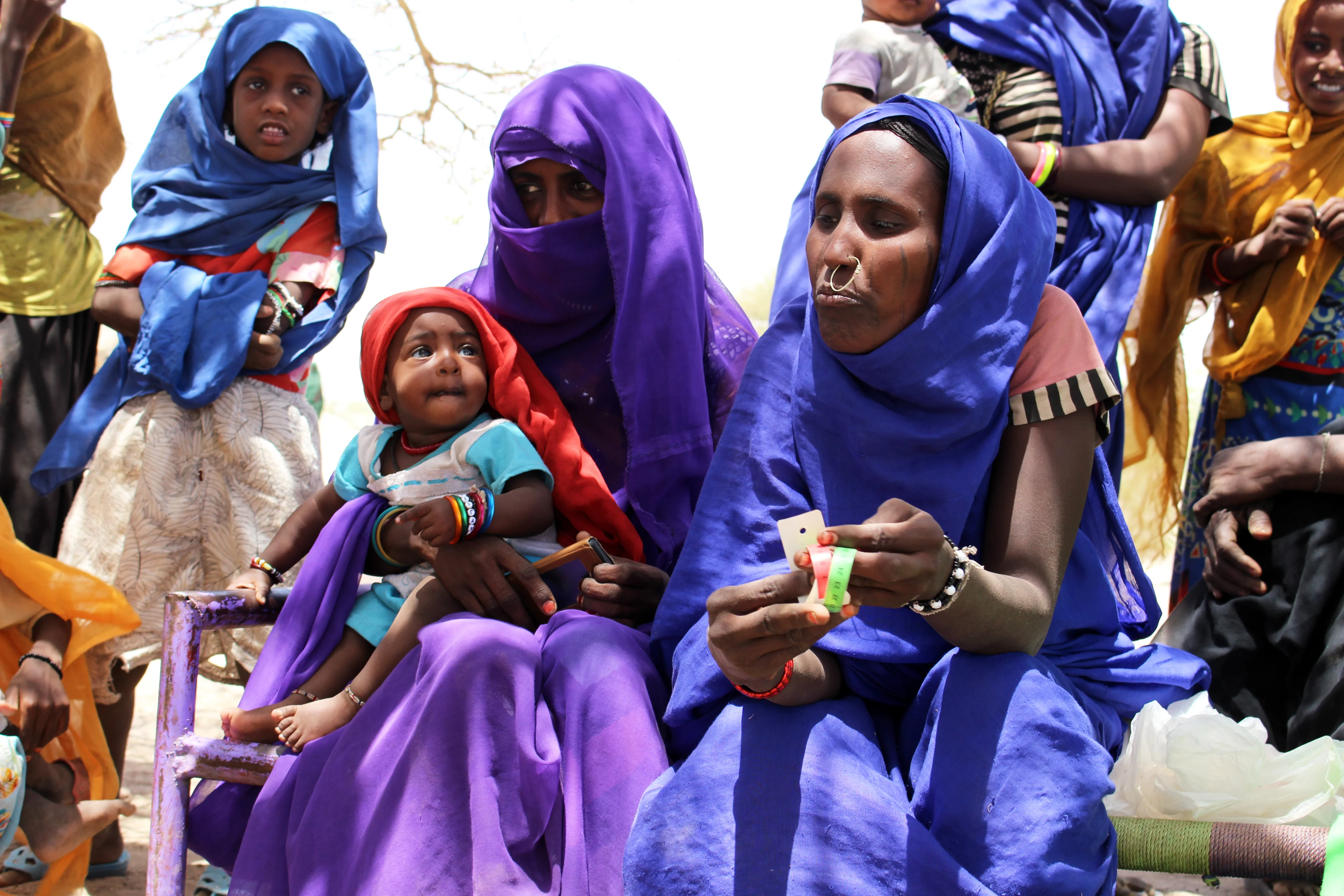World Refugee Day
“We are exhausted and just need to find a safe place.”

When fighting broke out in Sudan on 15 April, mother-of-four Nyakriir thought it wouldn’t last long and that the militia uprising would soon be quashed by the Sudanese army.
Originally from South Sudan, Nyakriir and her family left their country to escape the violence, finding safety and a new community in Sudan’s capital city Khartoum. Now faced with a new crisis, Nyakriir prayed that the situation wouldn’t get any worse.
“The first night was very long for me because I was really scared and started remembering the days in South Sudan. After one week, the shooting was getting very close to our neighborhood. We decided to look for a safer place. I was also getting scared for my children and my brothers as we heard that youth were being recruited to fight."
With no end to the conflict in sight, Nyakriir and her eight family members decided it was time to leave Khartoum.
“My brother arranged for us to travel together with other South Sudanese families. At that time, we had nothing in terms of food, water and money. From our house, we walked for an hour, after that we met a Sudanese man driving a lorry. He picked us up for free and took us to village called Jabal Awliya. There we met many people waiting for transportation.”
Until six weeks ago, more than 800,000 South Sudanese refugees lived in Sudan.
Since the conflict erupted in Khartoum, the UN High Commissioner for Refugees (UNHCR) has registered more than 57,000 people crossing into South Sudan1, the majority of whom are people like Nyakriir who are returning to the country having previously fled.
Amid the conflict, Nyakriir and her family managed to catch a bus to White Nile state in Sudan where they were taken to a camp, housing South Sudanese nationals.
“We spent five days there, but we couldn’t stay because of the lack of food in the camp, our children were starving so we decided to keep looking for somewhere better.”
After a long journey, Nyakriir and her family finally made their way to the border and crossed back into South Sudan. They are now living in the city of Malakal, which is already host to around 44,000 internally displaced people, and Nyakriir says the situation is not any better. “We are sleeping under trees with other families in a yard. In addition to that, we are facing many issues in terms of accessing food, water and shelter.”

During times of displacement, women and girls face an increased risk of discrimination and gender-based violence.
Nyakriir says she and her daughters are suffering a lot having to share their living space with men they do not know, and having to use the same toilets and sleep on the same mats.
This issue of privacy is very important and our needs as women are not being met. At night there are people coming into the yard from outside which makes us very scared. We are not comfortable here and we want to move as soon as possible. We are exhausted and just need to find a safe place and food.”
How are we responding?
Plan International Australia is currently working to deliver life-saving assistance to children and their families whose lives have been devastated by the Sudan crisis, with a focus on the needs of adolescent girls – scaling up humanitarian operations both in Sudan and in neighbouring countries, particularly along the borders of Egypt and South Sudan, to which many have fled.
The response has so far been focused on providing children and their families with cash, food, clean water, and other critical basic supplies, including menstrual health products; while over the coming weeks child protection, education, and protection from sexual gender-based violence for girls under 18 years will be scaled up, including prevention and response to child marriage.


